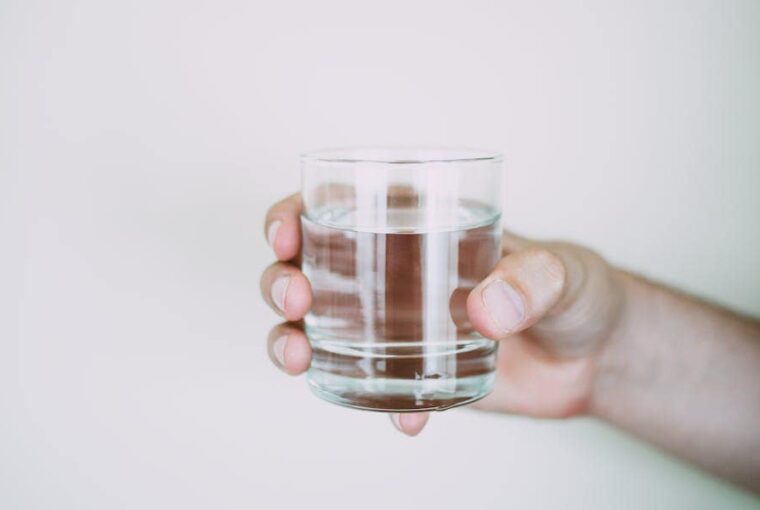Water is a fundamental component of life, essential for maintaining hydration and supporting various bodily functions. Despite its critical role, there’s often curiosity about its nutritional profile, particularly regarding its calorie content. Calories, units of energy derived from food and beverages, are crucial in managing weight and overall health. In the realm of nutrition, water stands out for its unique property: it contains zero calories. This characteristic makes water an invaluable part of a healthy diet, promoting hydration without affecting caloric intake. Understanding the calorie content of water and its importance can empower individuals to make informed choices about their hydration and nutritional practices.
How Many Calories In Water?
Plain water contains zero calories. It is a calorie-free beverage that is essential for hydration and supports various bodily functions without contributing to daily caloric intake. Water’s lack of calories makes it an ideal choice for maintaining hydration, especially for those managing their weight or seeking to reduce their intake of sugary or calorie-dense drinks.
The Nutritional Profile Of Water
Water is a vital nutrient, unique in its nutritional profile, because it contains no calories, fats, carbohydrates, or proteins. Its primary role in the human body is not to provide energy but to serve as a medium for various physiological processes. Water facilitates digestion, absorption, transportation of nutrients, and the elimination of waste products. It is essential for maintaining the body’s temperature and serves as a lubricant for joints and tissues.
Despite its lack of macronutrients, water is indispensable for life. It makes up about 60% of an adult’s body weight, highlighting its importance in maintaining bodily functions. The hydration provided by water influences every cellular process, making it critical for overall health. The absence of calories in water also means it can be consumed in large quantities without affecting one’s energy intake, which is particularly beneficial for hydration and health without contributing to weight gain.
In addition to plain water, there are various types of water available, such as mineral, sparkling, and flavored water. While still primarily calorie-free, some of these variants may contain minerals or added ingredients that can slightly alter their nutritional value. Mineral water, for instance, can provide essential minerals like calcium and magnesium, albeit in small amounts that do not contribute significantly to daily nutritional requirements.
The nutritional simplicity of water is what makes it universally recommended for optimal hydration. Unlike other beverages that may contain sugars, artificial sweeteners, or caffeine, water provides a pure and efficient way to stay hydrated without any adverse effects on health. It’s a cornerstone of a balanced diet, supporting the body’s natural processes and contributing to overall well-being without the need for calories.
Why Does Water Have No Calories?
Water has no calories because it does not contain any substances that the body can metabolize for energy. Calories are a measure of energy provided by the food and drinks we consume, derived from macronutrients like carbohydrates, proteins, and fats. These substances can be broken down by the body’s digestive system into energy that cells can use for various functions, such as growth, repair, and maintenance.
The chemical composition of water is simple: it consists of two hydrogen atoms bonded to one oxygen atom (H2O). This structure does not contain any carbohydrates, fats, or proteins—the sources of calories. Instead, water serves as a critical component in the body’s physiological processes without being a source of energy. It facilitates digestion, nutrient absorption, temperature regulation, and the elimination of waste, among other roles.
Furthermore, the body’s metabolic processes, which convert food into energy, do not act on water in a way that produces calories. Water passes through the body and aids in maintaining hydration, supporting cellular functions, and promoting overall health without contributing to caloric intake.
How Does The Body Process Water?
The body processes water through a complex system that involves absorption, distribution, utilization, and excretion, ensuring that every cell receives the hydration it needs to function properly. Here’s an overview of this process:
1. Absorption
- Intake: Water is consumed either directly as a beverage or through food. The body can also produce water internally through metabolic processes known as metabolic water.
- Gastrointestinal Absorption: Most water absorption occurs in the small intestine. The water moves from the digestive tract into the bloodstream through osmosis, facilitated by osmotic gradients and aquaporins (water channels in cell membranes).
2. Distribution
- Circulatory System: Once absorbed, water enters the circulatory system, where it is distributed throughout the body. It becomes part of the plasma, the liquid component of blood, helping to transport nutrients, hormones, and waste products to and from cells.
- Cellular Hydration: Water moves in and out of cells to maintain the appropriate balance of fluids and electrolytes, critical for cellular functions and overall homeostasis.
3. Utilization
- Metabolic Processes: Water participates in numerous biochemical reactions, including digestion, energy production, and the synthesis of important molecules. It acts as a solvent, helping to dissolve substances and facilitate chemical reactions.
- Thermoregulation: Water plays a key role in regulating body temperature through perspiration. When the body heats up, sweat glands release water onto the skin’s surface, where it evaporates, cooling the body.
- Lubrication: Water also serves as a lubricant in the body, cushioning joints, protecting tissues and organs, and aiding in the smooth operation of various bodily functions, such as swallowing and eye movement.
4. Excretion
- Waste Removal: The body uses water to eliminate waste products through urine, feces, sweat, and exhalation. The kidneys play a crucial role in filtering the blood and regulating water balance, ensuring that excess water and waste products are excreted.
- Balance Maintenance: The body constantly monitors and adjusts the levels of water intake and loss to maintain fluid balance. This regulation is managed by various mechanisms, including thirst response and hormones like antidiuretic hormone (ADH) and aldosterone, which influence water reabsorption and excretion.
Summary
Water, an essential nutrient with zero calories, is crucial for hydration and supports various bodily functions without contributing to caloric intake. It is absorbed primarily in the small intestine, distributed throughout the body via the bloodstream, utilized in metabolic processes, and excreted through urine, sweat, and other waste products. The body meticulously regulates water balance to maintain homeostasis, emphasizing water’s vital role in health. Unlike other beverages, water provides a pure form of hydration, crucial for well-being without affecting weight or energy levels.
FAQs
1. Can Drinking Water Help You Lose Weight?
Yes, drinking water can aid in weight loss by increasing satiety, reducing hunger, and boosting metabolism, which can lead to reduced calorie intake and increased energy expenditure.
2. Is It Possible To Drink Too Much Water?
Yes, drinking excessive amounts of water in a short period can lead to water intoxication or hyponatremia, a condition where sodium levels in the blood become dangerously low.
3. How Much Water Should An Average Adult Drink Daily?
The recommended daily water intake varies, but a general guideline is about 3.7 liters (125 ounces) for men and 2.7 liters (91 ounces) for women, including water from food and beverages.
4. Does The Temperature Of Water Affect Its Calorie Content?
No, the temperature of water does not affect its calorie content. Water remains calorie-free whether it is cold, room temperature, or hot.
5. Can Flavored Or Infused Water Still Be Considered Calorie-Free?
Flavored or infused water can still be considered calorie-free if it contains no added sugars or calories. However, some commercially flavored waters may have added ingredients that contribute to calories, so it’s important to check the label.




